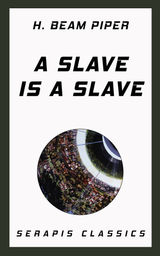
Sinopsis
In "Little Fuzzy," H. Beam Piper presents a captivating blend of science fiction and social commentary, exploring themes of identity, sentience, and the ethics of colonization. Set in a distant future on the planet Zarathustra, the narrative follows the discovery of the titular "little fuzzies," small, intelligent creatures that challenge the anthropocentric views of humanity. Piper's prose is marked by clarity and wit, utilizing a straightforward narrative style that invites readers to ponder the profound implications of the characters'Äô interactions amidst a richly imagined extraterrestrial landscape. This novel serves as a critical reflection on the moral responsibilities of advanced civilizations towards lesser beings, framing philosophical inquiries within an engaging plot that balances humor and gravity. H. Beam Piper was an influential figure in the realm of science fiction, known for his insightful explorations of societal structures and human nature. His experiences growing up during the Great Depression and his keen interest in history and politics undoubtedly shaped his worldview, leading him to examine complex ethical issues through the lens of speculative fiction. Piper's unique ability to intertwine personal narrative with broader social critiques stems from his own life encounters with injustice and moral dilemmas. "Little Fuzzy" is an essential read for anyone interested in the intersections of science fiction and ethics. It not only entertains but also provokes deep contemplation about what it means to recognize intelligence and autonomy in all forms of life. Readers who appreciate thoughtful storytelling intertwined with moral philosophy will find this novella to be a rewarding experience that resonates with contemporary discussions surrounding consciousness and rights.
H. Beam Piper
Datos del libro
- Editorial:
- Good Press
- ISBN:
- 8596547669777
- Idioma:
- Inglés
- Tamaño:
- Kb
- Publicado:
- Enero 1, 2023
- Protección:
- DRM


